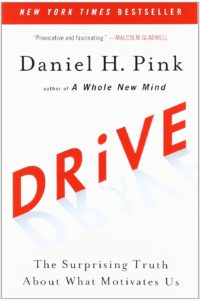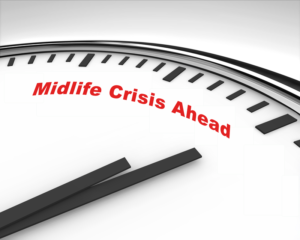 ”Mastery is next to autonomy and purpose one of the three elements that should define the new operating system of Type I behaviour according to the book titled “Drive” by Daniel H. Pink.
”Mastery is next to autonomy and purpose one of the three elements that should define the new operating system of Type I behaviour according to the book titled “Drive” by Daniel H. Pink.
He defines MASTERY as the desire to get better and better at something that matters.
And that, at least for me, seems to make a lot of sense.
Best setting for achieving Mastery
If you have ever tried to achieve mastery at something that doesn’t matter a lot to you, then you probably have noticed that it was really hard to achieve it. Even the slightest step in the direction of mastery was a pain in the ass. On the contrary, when you find something that really matters to you, mastery will come its own way. Especially with things that you love and enjoy, it will most likely come even without you noticing it.
What is described in the book as the flow, is the state of mind where you are autonomous and engaged. You could describe this state of mind as the moment where you are forgetting yourself in a function or task you are working on right now.
So getting better at something that matters and being at the same time in the flow, are definitely the best requirements to be on your way to achieving mastery.
Achieving Mastery in work environments
Nowadays thankfully the task to create a flow-friendly environment that helps people move toward mastery is something that a lot of companies take very serious. And the good thing is: this flow-friendly environment increases productivity and satisfaction at work.
Two tactics that you can use to make it possible for your employees to work in flow:
- Provide your employees with “Goldilocks Tasks”. This means they can work most of the time on tasks that are a little bit challenging but not too hot so that it would lead to frustration. They should be able to find the right balance between boredom and anxiety.
- Trigger the positive site of the Sawyer Effect, because it can not only turn play into work but also work into play.
The three laws of Mastery
According to Daniel H. Pink mastery abides by 3 laws.
1. Mastery is a mindset
The psychology professor at Stanford – Carol Dweck – believes in that what people believe shapes what people achieve. Imagine that, the first step of achieving anything you want is believing that you are able to really do it. Isn’t that also what MUHAMMAD ALI believed in?
“I am the greatest” were the words that Muhammad Ali was repeating and reciting to himself over and over again.
“It Is The Repetition Of Affirmations That Leads To Belief. And Once That Belief Becomes A Deep Conviction, Things Begin To Happen.”
If you yourself can‘t believe that you will achieve something, nobody else will believe it and you probably never ever will.
Entity Theory vs. Incremental Theory
So what you need to know about mastery is that there are two ways how you can see what mastery is:
- Entity theory: which basically believes that intelligence is a finite entity supply that cannot be increased. The best comparison would be to see intelligence as height. If you want to get taller, you will fail easily and it will never happen. People who believe that working hard means that you are not very good at whatever you are trying to do also tend to blame the ”lack of intelligence” for not getting things done or not achieving whatever they want to achieve. They also prefer performance goals over learning goals. This would mean that they are satisfied with an A in the french exam rather than being really able to speak french.
- Incremental theory: believes that intelligence may somehow vary from person to person but it also believes that it is something that can definitely be increased (with effort). To also put it into an example you could see intelligence as strength. If you want to get stronger, start pumping iron. Unlike the entity theory, the incremental theory believers prefer learning goals over performance goals. Which means that their aim is to be able to speak french and not only to get an A on the next exam. Working harder means getting better at something.

The behaviour that we all should be aiming for could have the following characteristics:
- believe in incremental theory of intelligence
- prefer learning goals over performance goals
- welcome effort as a way of improvement at something that matters
2. Mastery is a pain
Flow can make achieving mastery much easier, but it doesn‘t guarantee mastery. The reason for that is because the two concepts operate on different time horizons.
Flow happens in the moment, mastery unfolds over months, years or even decades. This basically means that if mastery is your goal you want to reach in any kind of area like sports, music, business — it requires painful, excruciating, all-consuming effort over a long time period!
Daniel Chambliss found in a 3-year study of olympic swimmers, that those who did the best typically spent the most time and effort on the mundane activities that readied them for races.
This somehow reminds me of “The Power of Habit” by Charles Duhigg. In his book he describes that if you want to get really good at a specific task, you should make a habit out of the mundane tasks. Then you will not have to think about them anymore. Duhigg mentions in his book how Tony Dungy tried to make a football team a winner team, by trying to change their habits. Dungy would explain that “Champions don’t do extraordinary things. They do ordinary things, but they do them without thinking, too fast for the other team to react. They follow the habits they’ve learned.” So at the point when you make mundane tasks become habits, you have time and energy to take another step in the direction of mastery.

Working hard and working long without switching objectives is probably the key thing of trying to achieve mastery.
“Being a professional is doing things you love to do, on the days you don‘t feel like doing them.”
3. Mastery is an asymptote
The third law of mastery has a downside. It tells us, that mastery is something that you are not able to achieve 100%. But the good thing about that is, that you will always be able to get even better by trying just a little bit harder.
So first of all, let’s clarify what an asymptote is.
An asymptote is a straight line that a curve approaches but never quite reaches.
If you found an area that matters to you and you really want to get better in it, that‘s the time and place to make mastery a priority for you. But be aware: mastery isn‘t something that can really be reached. It works like an asymptote. It can be your goal, something to aim for, but you will never achieve 100% of mastery. People who are really extraordinary good at something, know that they can always aim higher. And that‘s somehow the beauty of mastery: you can always get better and better at the things that matter to you.
The joy is IN the pursuit more than IN realisation — trying to get better even if you are already a ”master” in a specific field.
3, 2, 1 — let‘s aim for Mastery
Finding an area in which you want to aim for mastery, will somehow give you purpose and a motivation boost.
And btw — somehow kids and little children tend to be more likely in flow. They use their bodies and their minds to probe and draw feedback. Kids do this until they stop. They stop because they start to get ashamed of being childish. And that is in my opinion one of our biggest mistakes while growing up. We are too mature, too grown-up, too serious … we have to search and hopefully find the child in us. Then finding flow should become easier.
So define your goal you want to achieve, get out of your comfort zone, be a little bit childish and start getting better at whatever matters to you.
Take a step in the direction of mastery.
One additional Question
Is the reason for so many men ending up having a midlife crisis at some point in the lack of childishness during their life? At some point they get sooo incredibly immature and reckless, that in almost all cases it is unbearable 😉 Would they be able to skip this midlife crisis step, if they would be a little bit more childish during their everyday life?

